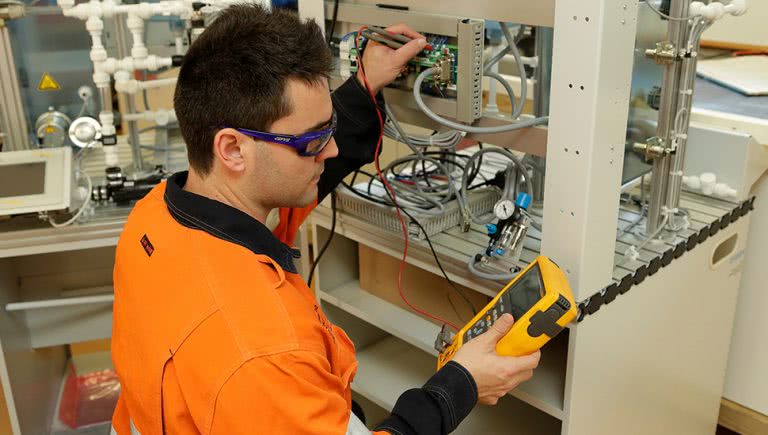180 TAFE courses are now included as part of the Government of Western Australia’s Lower Fees, Local Skills initiative, which means there’s never been a better time for WA residents to gain skills in various job growth areas that will result in long-term employment.
Fees have been reduced by up to 72% for priority qualifications across construction, agriculture, automotive and engineering, business, nursing, aged care, disability support, hospitality, logistics and information technology. But it doesn’t end there. An annual fees cap applies to all of the Lower Fees, Local Skills qualifications, which includes those beginning in 2021. To be more precise, annual course fees are capped at $400 for concessions, under-25s and those looking for work, and $1200 for non-concession students.
Premier Mark McGowan first announced the Lower Fees, Local Skills initiative in October 2019 with the aim of making training more affordable for Western Australians under 25 and people of all ages looking for work. McGowan’s Labor Government have now re-upped the program, adding an extra 107 TAFE courses, which will be available from January 1, 2021.
Michelle Hoad, Managing Director of Perth’s North Metropolitan TAFE, says the new funding provides a great opportunity for those who have been most disadvantaged during the pandemic.

“The program has been expanded to support Western Australia’s economic recovery and generate a pipeline of skilled job-ready workers, laying the groundwork for a bright and prosperous future,” she says.
“Lower Fees, Local Skills is designed to assist young people, Aboriginal people, people returning to work and job seekers of all ages to retrain or upskill while also providing training for emerging skills needed in the community.”
The aforementioned priority industries are those in which there are immediate skills needs, meaning learners can access a direct pathway to fulfilling long-term careers. For instance, the Certificate IV in Allied Health Assistance focuses on working with children, adults and older people with a range of physical disabilities, mental health conditions and developmental delays.
“As part of the course, students complete six weeks of full-time placement with one of our industry partners, ensuring graduates are job-ready to hit the ground running in the real world,” says Hoad.
In the IT department, you’ll find the Advanced Diploma of Cyber Security, which supports the Australian Government’s Cyber Security Strategy by addressing a predicted skills shortage in this field.

The Lower Fees, Local Skills funding also extends to a number of courses in the engineering and construction sectors, including the Diploma of Civil and Structural Engineering, which provides students with the necessary skills for starting or advancing their career in civil engineering.
But what if you’re not interested in pursuing one of the priority qualifications? Well, that doesn’t mean the Lower Fees, Local Skills program has nothing to offer you. In fact, all TAFE qualifications develop skills that could also lead to job opportunities.
“At the moment there are some industry areas that are experiencing significant growth and we need to increase the number of people with the skills required for all the works that are planned and underway,” says Hoad.
The WA Government’s Green Jobs Plan – a $60.3 million investment in environmental projects – is one such area of significant growth.
“The courses also support our resources and agricultural industries,” says Hoad, “which contribute significantly to the WA economy.
“The health care and social assistance sector is also tipped to see significant jobs growth. The Deloitte Access Economics’ June 2020 forecast estimates growth of around 25,000 WA jobs out to 2024.”
Watch ‘TAFE is the place for training’
Perhaps you’ve regarded TAFE as an inferior educational route – an intermediate option rather than an end in itself. But the massive state and Commonwealth funding for Lower Fees, Local Skills should serve as confirmation that studying at TAFE will not only be fulfilling, but also lead to long-term opportunities.
“Qualifications at TAFE are designed to stringent industry standards and delivered in an applied or simulated setting that creates job-ready graduates,” says Hoad. “TAFE graduates are business owners, technicians, analysts, industry workers, community workers, tradespeople, artists and designers.”
TAFE courses are generally more hands-on than what you’d find at other educational institutions. This can make learning at TAFE a uniquely compelling proposition for those eager to advance their skills and empolyability.
“This is particularly true for the new Job Ready skill sets that are designed to fast-track training to get you job-ready,” Hoad says. “For example, with the Infrastructure Ready skill set, students complete an intensive four weeks of training, which includes a work placement with contractors across major road and rail projects.”

There is a widespread assumption that TAFE is where you go to obtain a trade qualification. But while this is obviously a significant part of the training TAFE provides, it’s a misperception to see TAFE as purely a breeding ground for tradies.
“We train individuals for some very highly-paid, sophisticated paraprofessional careers in fields such as education, healthcare, engineering and IT,” says Hoad.
So where to start? If you’re unsure about the specific industry and skills you’d like to pursue, Western Australians can access free advice and guidance on careers, training and employment at their nearest Jobs and Skills Centre. Two new locations have recently opened in Midland and Armadale, which brings the total number of Jobs and Skills Centres to 15, along with additional outreach locations.
But the bottom line is this: TAFE qualifications are not only more affordable than ever before in WA, but by virtue of their strong focus on skills, TAFE training allows you to walk straight into a workplace and proceed with confidence.


































